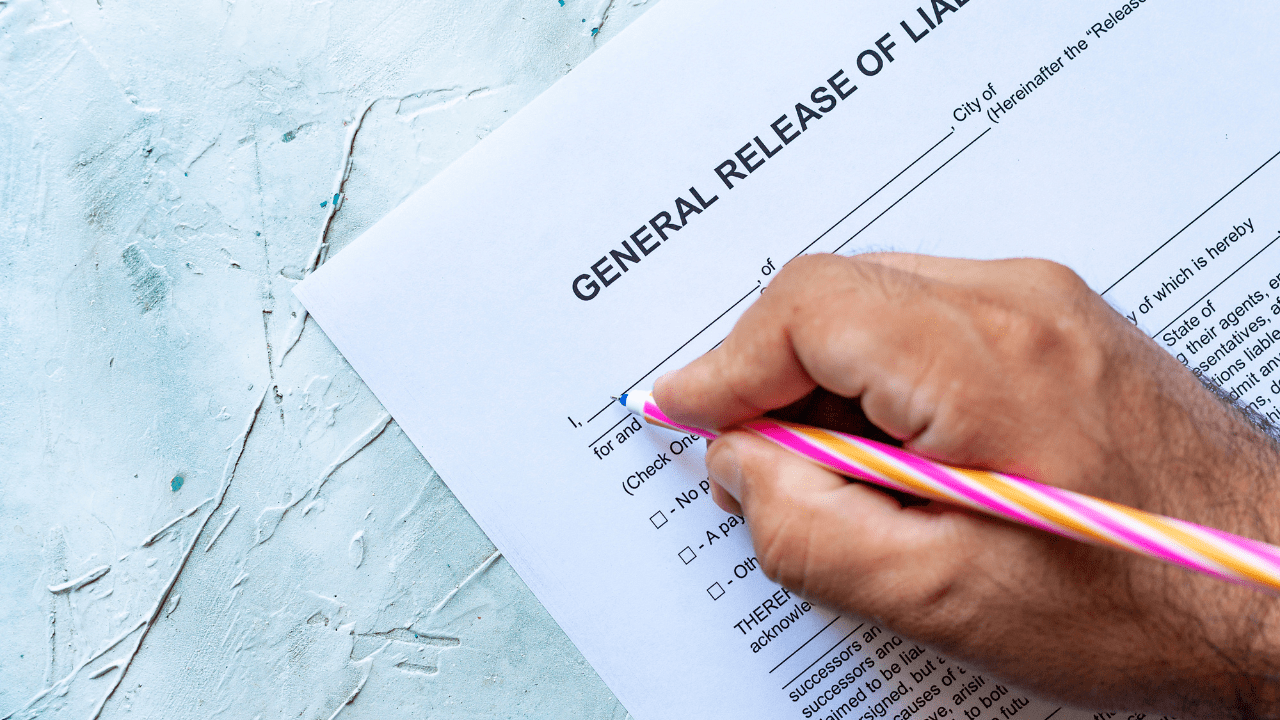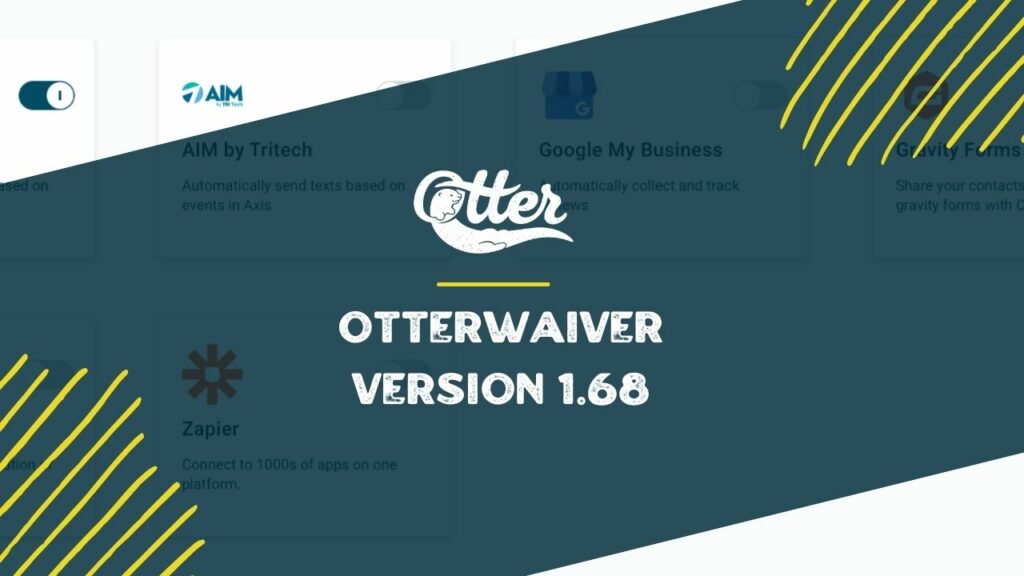Have you ever signed a waiver without giving it much thought? Or, as a business, ever wondered if your waivers are ironclad enough to stand up in court? If so, you’re not alone.
Waivers are so commonplace today that they’re often overlooked or misinterpreted. However, these legally binding documents hold immense significance, impacting your rights as a consumer and protecting businesses from unnecessary liability.
Whether you’re a consumer signing waivers or a business navigating your way around implementing them, read on to unravel the complexities of waivers and understand their true importance.
Clear and Understandable Waiver Language
If you’ve ever found yourself squinting at a waiver, trying to decipher the convoluted legal jargon, you’re not alone. Waivers can often feel like they’re written in a foreign language, with complex phrases that are hard to comprehend.
To ensure a waiver is legally binding, it must be written in clear, understandable language. As a consumer, you should be able to grasp the terms and conditions without confusion. Similarly, a business issuing a waiver must communicate these conditions transparently.
Let’s consider an example. You’re about to go skydiving, and you’re handed a waiver that reads, “The undersigned does hereby remise, release, and forever discharge the Company, its agents, employees, and any third parties acting on its behalf, of and from all, and all manner of action and actions…” And so on. It’s a handful, isn’t it?
The usage of plain language can make all the difference here. A rewritten version could be: “By signing below, you agree to release the Company, its agents, and employees from all liabilities…” It says the same thing but is simpler and easier to understand.
More complex language can only invalidate a waiver if it prevents the consumer from fully understanding their agreement. So, the next time you’re handed a waiver filled with legalese, don’t hesitate to ask for clarification or seek legal advice.
Ensuring your waivers are written in clear, plain language is crucial as a business. This fosters trust with your customers and can safeguard your company from legal disputes.
Waiver Limitations: 3 Key Points to Understand
When it comes to signing waivers, both consumers and businesses must understand their limitations. Here’s what you need to know:
- No Absolution of Liability: Even with a signed waiver, companies cannot completely evade liability, especially in cases involving gross negligence or intentional harm. For instance, if a bungee jumping company fails to maintain safety standards resulting in an injury, the waiver cannot protect the company from liability.
- Statutory Rights Preserved: A waiver cannot override statutory rights. These rights are granted by law and remain intact regardless of the waiver. For instance, a consumer’s right to a refund under specific conditions cannot be waived off.
- Not a ‘Get Out of Jail Free’ Card: Businesses should remember that waivers, while helpful for managing risk, cannot absolve them from all responsibilities or legal obligations. Ensuring safety standards, fair practices, and customer satisfaction should remain paramount.
What Are Unconscionable Contracts?
The concept of “unconscionability” is a powerful consumer protection tool. It’s a legal principle that helps keep the balance between businesses and consumers.
An “unconscionable” contract is essentially excessively unfair or unjustly one-sided. Imagine an agreement that significantly favors the business at the expense of the consumer’s rights, with no reasonable or justifiable grounds. That’s an unconscionable contract.
For example, a gym membership agreement that absolves the gym from any liabilities, including those arising from their negligence, could be considered unconscionable.
The good news is courts can refuse to enforce such contracts, protecting consumers from grossly unfair terms. This principle applies even if you’ve signed a waiver.
It’s a crucial reminder for businesses to keep their contracts fair and balanced. Not only is it a good ethical practice, but it also helps ensure your contracts withstand legal scrutiny.
Here are some key takeaways:
- Watch Out for Unfair Terms: As a consumer, be wary of contracts that seem excessively unfair or one-sided. If something feels off, it probably is.
- Be Fair, Be Safe: For businesses, strive to keep your contracts fair. It’s not only ethical but also legally prudent.
- Seek Legal Advice: If a contract appears to be unconscionable, it’s wise to consult with a qualified attorney. They can provide guidance and ensure your rights are adequately protected.
Digital Waivers: A New Era for Legal Agreements
Transitioning from traditional paper waivers to digital ones isn’t just about embracing technology – it’s about paving the way for more efficient, secure, and legally-compliant agreements.
Digital waivers bring many benefits for consumers and businesses, including ease of access, convenience, reduced paper waste, and improved document security. Yet, their importance goes beyond these operational perks. Digital waivers introduce a new level of legal precision and compliance, as they can cater to complex requirements and safeguards of various jurisdictions.
However, to ensure that your digital waiver serves its purpose effectively, it’s paramount to follow best practices:
- Ensure E-sign Compliance: Your digital waiver system must align with the e-signature laws of the country you operate in. The United States adheres to the ESIGN Act, while Canada follows the Uniform Electronic Commerce Act (UECA), defining what constitutes a legal electronic signature.
- Proper Formatting: The waiver’s content should be well-structured and formatted appropriately to ensure easy comprehension. It should follow a logical sequence, featuring legible fonts and delineated sections.
- Privacy Protections: The system must respect the privacy rights of the signees, especially regarding data collection, storage, and sharing. Compliance with specific state or provincial privacy laws like the California Consumer Privacy Act (CCPA) in the US, and the Personal Information Protection and Electronic Documents Act (PIPEDA) in Canada is crucial.
- Transparent Disclosures: Disclosures, ranging from the significance of electronic signatures to data sharing with Point-of-Sale (POS) systems, must be explicitly stated, guaranteeing that signees are fully aware of the document’s implications.
- Create Audit Trails: Audit trails, which are records of every action related to the waiver signing process, aid in verifying the document’s authenticity and ensure accountability.
Common Pitfalls in Paper and Digital Waivers
Whether as a consumer or a business, the right to informed consent hinges on understanding what you’re signing. Yet, many waivers are mishandled, often resulting in substantial legal implications. To aid your understanding, we delve into the common pitfalls associated with paper and digital waivers.
The Paper Waiver Pitfalls: 4 Key Scenarios
From adventure sports operators to healthcare facilities, paper waivers are ubiquitous. However, it’s surprising how often they are improperly managed. Let’s examine four typical scenarios:
- Separated Terms and Signatures: Picture this: you’re given a list to sign, mixed with other names, and there’s a separate sheet with the terms. Your agreement and the terms aren’t on the same page, resulting in a disjointed waiver that can be legally challenged.
- Overcrowded Signatures: Imagine a single sheet of paper passed around to an entire group. The waiver details are in tiny print, competing for space with multiple signatures. This layout makes the document hard to read and comprehend.
- Unseen Backside Signatures: Legal documents printed on both sides can be problematic. The back side is considered private in court proceedings. So, if your signature is on the back, it won’t hold as evidence in court.
- Missing Page Numbering: A waiver with unnumbered or unbound pages can lead to lost or deliberately removed pages. Page numbers are crucial for maintaining the integrity of multi-page documents.
To avoid these pitfalls, a well-structured paper waiver should:
- Be printed on A4 paper.
- Use a 1″ border and size 12 font for legibility.
- Include page numbers at the bottom.
- Have a single signature line on the last page.
- Provide an option for the signee to initial each page, ensuring they stay connected if separated.
- Give the signee a printed copy after signing.
Navigating the Digital Waiver Landscape
Despite the shift to digital, it’s alarming how many waiver systems don’t meet compliance. Here are the most common issues:
- E-signature Non-compliance: Not all waiver software adheres to the mandatory e-sign laws, rendering the waivers legally ineffective.
- Absent Email Confirmation: Once a waiver is signed, it should be emailed to the signee as proof of their agreement. However, some systems need to catch up on this critical step.
- PDF Inconsistencies: The best practice is to have the signing process done on a paginated PDF, ensuring document integrity. Unfortunately, this isn’t always the case.
- Moving Signatures Post-Signing: If a signee’s signature is moved after the signing process, it alters the original document, potentially invalidating the waiver.
- Improper Formatting: Proper formatting enhances readability and comprehension. But, many digital waivers fail to meet standard formatting guidelines, leading to clarity.
- Inability to Print: A digitally signed waiver should be printable for the signee’s records. Some software fails to provide this feature.
- Missing Disclosures: Critical disclosures about electronic signatures and data sharing with POS systems are often omitted, potentially violating consumer rights.
- Lack of Audit Trail: An audit trail – a record of every action related to the waiver signing process – is vital for accountability. It’s an area where many software systems fall short.
- Insufficient Privacy Disclosures: Failure to disclose data privacy rights to visiting residents from specific states, like California or Colorado, can lead to legal repercussions.
- Invasion of Privacy: Surprisingly, some waivers infringe on privacy rights by recording customers without explicit consent.
The good news is that, as a company, you can bypass these challenges with OtterWaiver. We’ve integrated all essential compliance checks, protecting you from risks. With our user-friendly interface and commitment to security, OtterWaiver provides the perfect solution for your waiver needs.
Final Thoughts
Whether you’re a consumer signing a waiver or a business implementing one, it’s essential to understand the legal implications fully. If you need clarification on any waiver aspect, it’s always best to seek legal advice.
Created collaboratively with legal experts and outdoor industry professionals, OtterWaiver offers an uncomplicated, user-friendly experience.
We are the first outdoor online waiver software adhering strictly to the ESIGN Act and Uniform Electronic Transactions Act (UETA). We’re all about customer retention, cost efficiency, and ongoing guest experience enhancement.
Ready to be part of the future? Sign up for OtterWaiver now.
Disclaimer: This blog post is for informational purposes only and does not constitute legal advice. If you need legal advice, please consult with a professional legal practitioner.



